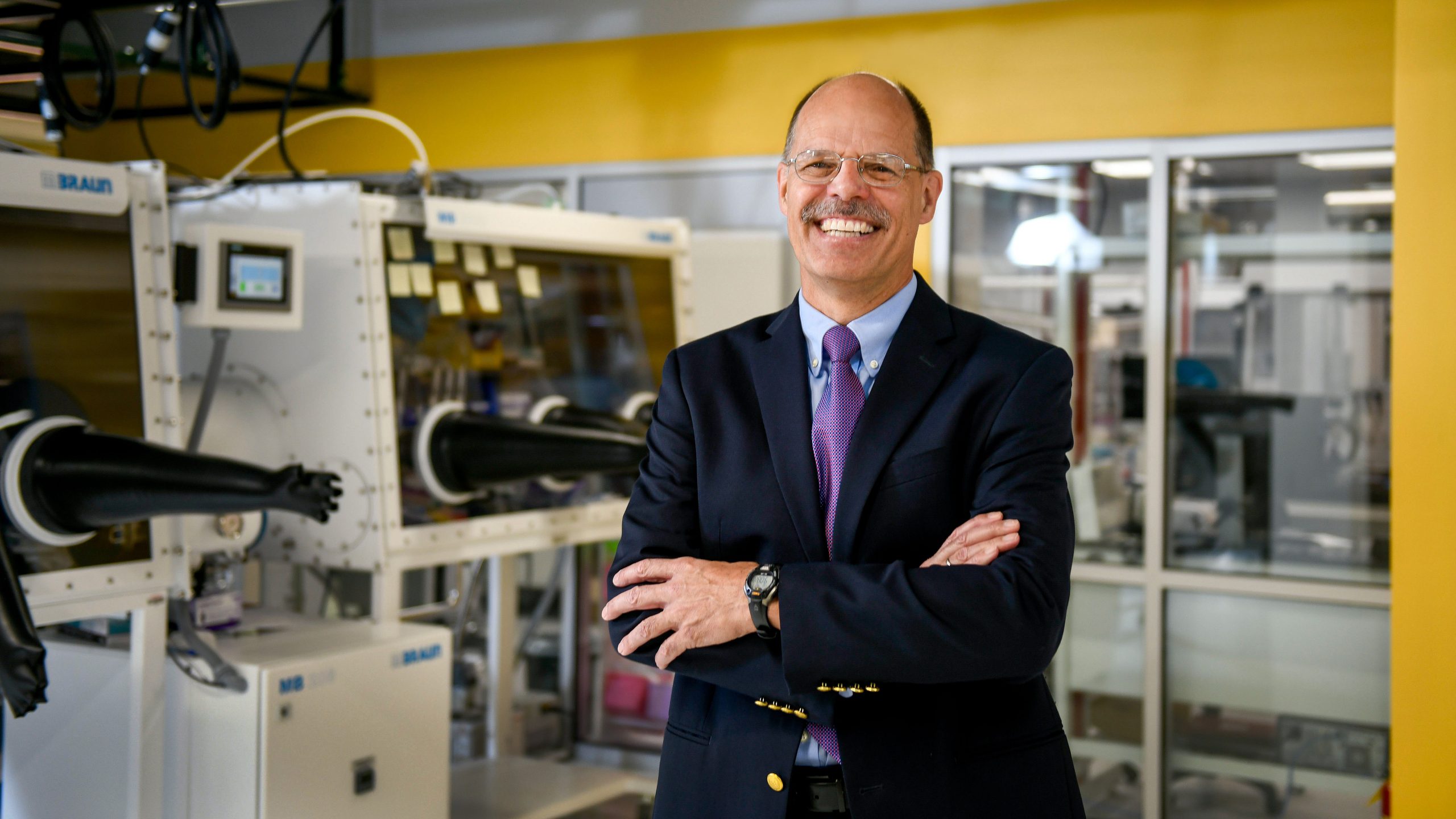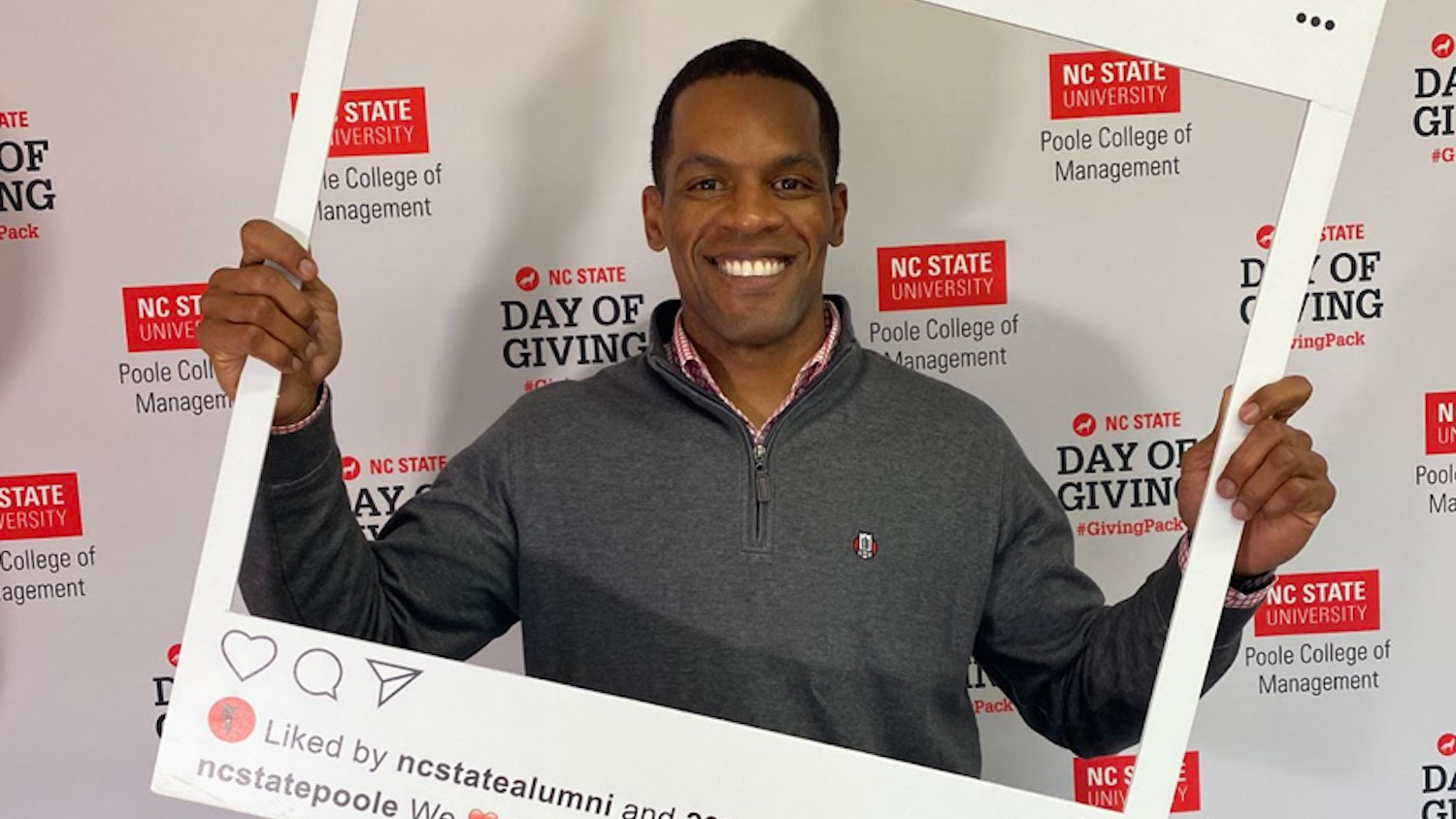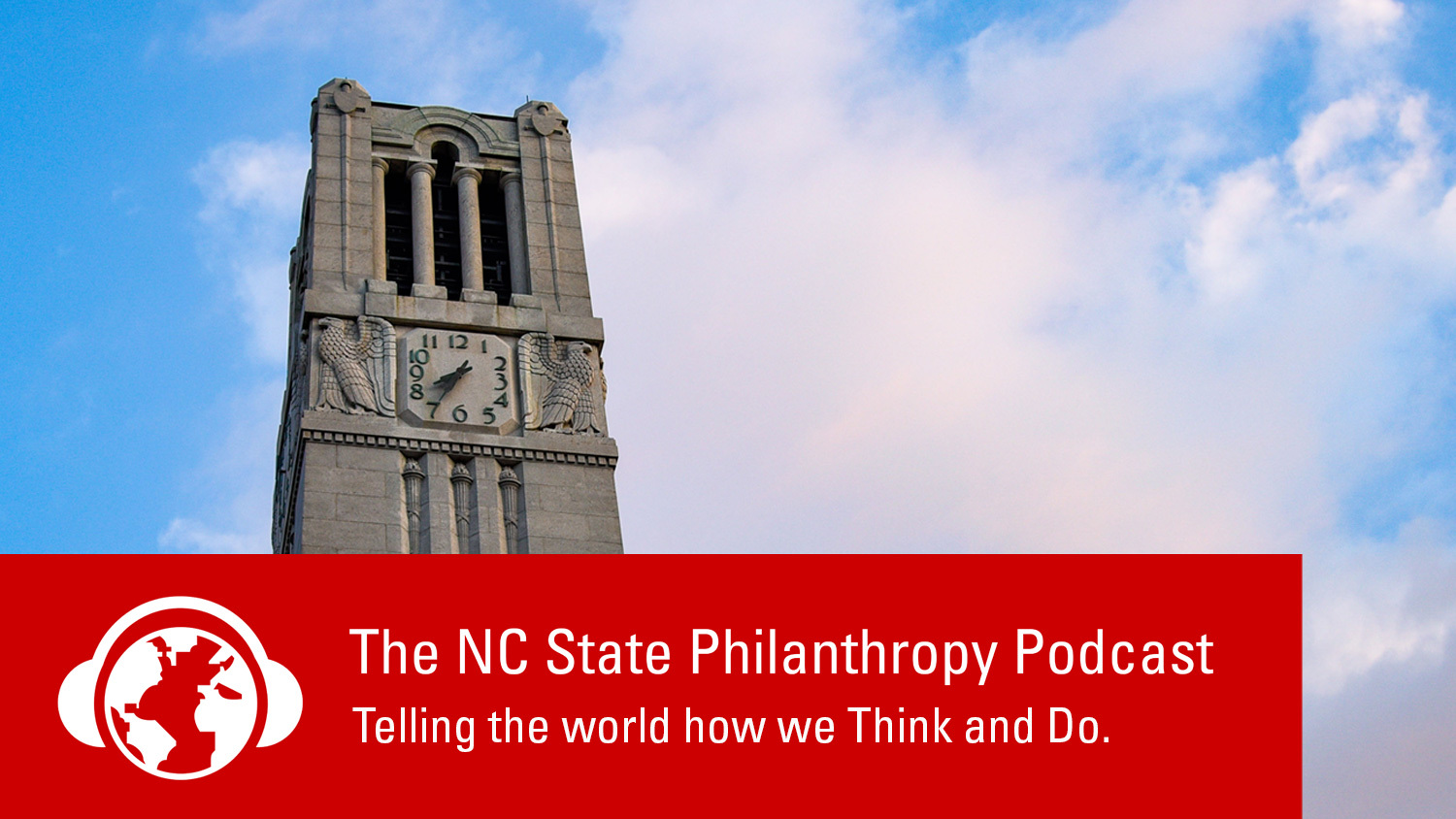When Harald Ade began his career in physics, he never imagined he would one day work with greenhouses, exploring the potential for solar cells to power them.
But that’s the direction in which his work has grown.
“Now, after starting out in graduate school in high energy physics, one of the most fundamental sub-disciplines, I’m published mostly in materials science-type journals, not physics journals,” Ade said. “I am, by nature, interested in interdisciplinary, intellectually diverse environments, and that’s why I initially loved the synchrotron radiation world.”
His love of synchrotron radiation — electromagnetic radiation emitted by a spinning charged particle — brought Ade to NC State as a professor in 1992. There were only two or three synchrotron radiation facilities in the United States and NC State was planning to build one that focused more on applied sciences.
“I was recruited as part of an evolving team, to try and make a case to build such a facility either on campus or in the Triangle,” he said. “We almost got money to do it, but the timing was unfortunate because this was during the recession and budget crisis of the early ’90s.”
The importance of funding in the science world is no secret. Money typically offered through grants fuels discovery, learning and engagement — three tenets Ade believes are most critical in education. Private support from donors is increasingly giving NC State’s faculty the flexibility to take risks and pursue new research, beyond what they can do through grants and budget appropriations.
In 2016, Ade was named a Goodnight Innovation Distinguished Professor of Physics, and he says that the funds from this professorship have helped make him feel more appreciated by the university, retained him in a proactive way and, critically, furthered a story of growth.
“You put [a named professorship] on the table, it becomes a great attractor and enabler,” he said.
The ability to recruit and retain faculty through the creation of endowed positions is one of NC State’s Think and Do the Extraordinary Campaign priorities. These positions provide salary support and discretionary funds that faculty members can invest in discovery and innovation, unique facilities and other professional needs.
At the end of the day, the professorship isn’t about the title for Ade — it is about the resources. His professorship has provided a safeguard, flexibility and a leg up when applying for additional grants.
“Sometimes it is also a bit like insurance,” he explained. “Equipment breaks and I need $25,000 to fix something. Under ordinary circumstances, that’s incredibly difficult. Now you suddenly need to ‘find’ that money in your grants because you can’t schedule for failure, right?” Such reallocations are disruptive, take time and even limit opportunities for paid student research involvement.
Foster Innovation and Inspire Growth
The funds from his professorship also allow Ade to take advantage of brief windows of opportunity. When a chance to go after a world record for highest efficiency of electronic, organic semiconducting devices called photovoltaics arose, there was no grant that would have allowed Ade to mobilize his team. The added resources from the Goodnight Innovation Distinguished Professorship gave him the freedom to pursue a changing line of inquiry in ways that grant-making organizations do not.
With control over resource allocation, Ade directed the research team to focus on the record for a few months. While they were unable to beat it, they came extremely close. And Ade said that these efforts provided the confidence to found a company and pursue commercialization — while putting their project and NC State on the map.
Not only does the professorship award Ade adequate funding and flexibility, it boosts his ability to secure additional grants.
“A fair fraction of my work is in this prospecting mode,” said Ade. “You need to find new mines, new areas where there’s scientific gold. And that prospecting is extremely hard to do without flexible money.”
Ade, his team and company recently applied for a Small Business Technology Transfer grant. When applying for such funding, there are often multiple stages available. At each phase, researchers have to demonstrate the progress of their research and expected outcomes if they move forward. For Ade, professorship funds will increase his likelihood of going from Phase One, which grants $140,000 over six months, to Phase Two, which is $750,000 over two years.
“It allows me to supplement that effort and it allows me to do some of the key research that is needed in order to succeed on the business end of things.”
You need to find new mines, new areas where there’s scientific gold. And that prospecting is extremely hard to do without flexible money.
Ade’s current success is found with greenhouses — more specifically, what you find on top of them. Professorship funds have strengthened the team’s research and allowed them flexibility not awarded through some grants.
“We use color-tuned semi-transparent solar cell enclosures for greenhouses that allow you to harvest energy while letting enough light through for the plants to still do well. We think it is possible they do even better because they’re sensitive to excess exposure to light. And that’s where the research is,” he said.
Harvesting the excess energy to power the greenhouses is where Ade and his team see opportunity. When farmers are able to place these solar cells on top of greenhouses, they are reducing land use and their carbon footprint.
A professor for almost 30 years at NC State, Ade still loves research and engaging in learning with his students. “I was seeking leadership positions at some point and they fell through, but I’m happy they did. I really don’t like to give up pushing the students. I love it.”
For students in Ade’s classes and research group, he focuses on mentoring to see what he calls the “differential,” or the amount of growth they achieve throughout their education. “They come in as sort of unfinished products. They have potential and some basic skills, but through discovery, learning and engagement, you see them soar.”
While the team still has more to discover, Ade is excited to see how this greenhouse idea could change the future for farmers in North Carolina and beyond.
Change and growth toward unrealized potential seem to be a pattern in Ade’s work — for his students, his research and even himself.



